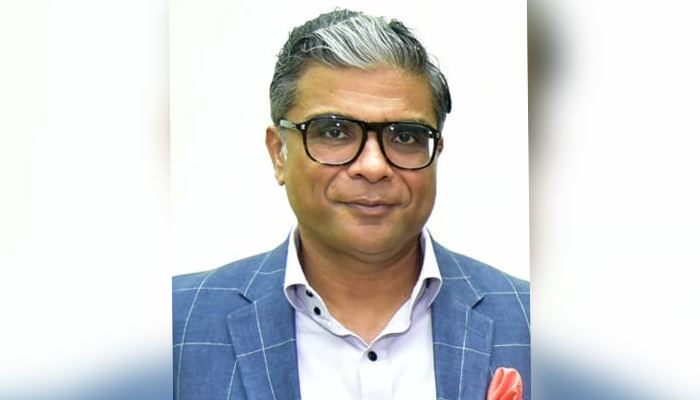Growers warn constructing new canals may prove harmful
HYDERABAD: A monthly meeting of the Sindh Abadgar Board was held at its central office in Hyderabad.
Presided over by Mahmood Nawaz Shah, the president of the board, the meeting discussed various issues of agriculture, including irrigation systems and tax on agricultural income.
Participants of the meeting expressed concern over the lack of proper maintenance of Pakistan's irrigation network.
It was pointed out that before constructing six canals on the Indus River, a study should be carried out to understand the current state of water availability in Pakistan, need for drainage structures and what should be the economic and financial priorities of the government.
It was highlighted in the meeting that the current capacity of the irrigation infrastructure was sufficient to carry the water stipulated in the 1991 Water Accord.
It was said that any additional infrastructure on the Indus River would not only harm the agriculture but also decrease the amount of water available for cities like Karachi.
The growers said that the current infrastructure of irrigation was old, which needed to be modernised and replaced at some places.
It was said that the Sukkur Barrage, which was built in 1932, was the oldest and largest barrage in the country. However, recent incidents indicated that it was becoming dilapidated due to which eventually, a new barrage would have to be built and it would require a lot of money.
Apart from this, the canals coming out of the barrages had also become old with their headworks and gates becoming unusable, and they also needed to be replaced, the meeting was told.
The Sindh Abadgar Board declared it necessary to increase the productive capacity of agricultural water.
The participants called for preparing a strategic plan for the provision of energy, technical skills and financial resources to the growers for ensuring water conservation and increased agricultural productivity in the country.
The growers observed that the construction of the Bhasha Dam had also been stopped due to financial constraints. In addition, climate change had created new challenges, requiring restoration of natural waterways and strengthening of dams to prevent flooding.
-
 Funeral Home Owner Sentenced To 40 Years For Selling Corpses, Faking Ashes
Funeral Home Owner Sentenced To 40 Years For Selling Corpses, Faking Ashes -
 Why Is Thor Portrayed Differently In Marvel Movies?
Why Is Thor Portrayed Differently In Marvel Movies? -
 Dutch Seismologist Hints At 'surprise’ Quake In Coming Days
Dutch Seismologist Hints At 'surprise’ Quake In Coming Days -
 Australia’s Liberal-National Coalition Reunites After Brief Split Over Hate Laws
Australia’s Liberal-National Coalition Reunites After Brief Split Over Hate Laws -
 DC Director Gives Hopeful Message As Questions Raised Over 'Blue Beetle's Future
DC Director Gives Hopeful Message As Questions Raised Over 'Blue Beetle's Future -
 King Charles New Plans For Andrew In Norfolk Exposed
King Charles New Plans For Andrew In Norfolk Exposed -
 What You Need To Know About Ischemic Stroke
What You Need To Know About Ischemic Stroke -
 Shocking Reason Behind Type 2 Diabetes Revealed By Scientists
Shocking Reason Behind Type 2 Diabetes Revealed By Scientists -
 SpaceX Cleared For NASA Crew-12 Launch After Falcon 9 Review
SpaceX Cleared For NASA Crew-12 Launch After Falcon 9 Review -
 Meghan Markle Gives Old Hollywood Vibes In New Photos At Glitzy Event
Meghan Markle Gives Old Hollywood Vibes In New Photos At Glitzy Event -
 Simple 'finger Test' Unveils Lung Cancer Diagnosis
Simple 'finger Test' Unveils Lung Cancer Diagnosis -
 Groundbreaking Treatment For Sepsis Emerges In New Study
Groundbreaking Treatment For Sepsis Emerges In New Study -
 Roblox Blocked In Egypt Sparks Debate Over Child Safety And Digital Access
Roblox Blocked In Egypt Sparks Debate Over Child Safety And Digital Access -
 Savannah Guthrie Addresses Ransom Demands Made By Her Mother Nancy's Kidnappers
Savannah Guthrie Addresses Ransom Demands Made By Her Mother Nancy's Kidnappers -
 OpenAI Reportedly Working On AI-powered Earbuds As First Hardware Product
OpenAI Reportedly Working On AI-powered Earbuds As First Hardware Product -
 Andrew, Sarah Ferguson Refuse King Charles Request: 'Raising Eyebrows Inside Palace'
Andrew, Sarah Ferguson Refuse King Charles Request: 'Raising Eyebrows Inside Palace'




